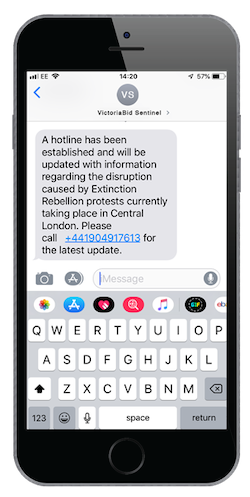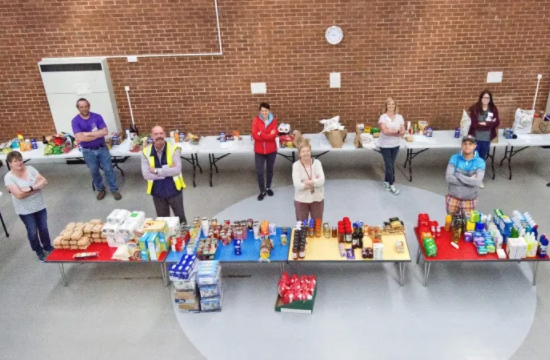Sentinel Hotline cloud telephony is a powerful and versatile tool for managing communications during emergencies and incidents. The ability to set up lines in advance or spin up ad hoc lines in under 60 seconds is very useful for responding to unexpected situations.

Sentinel Hotline is designed to improve communication and the flow of information during disruptive and emergency situations. Hotlines are used for keeping staff, contractors and a wider audience informed during fast moving events, filling the communication vacuum that occurs so frequently.
Importantly, incident managers can push out updates with minimal effort to multiple hotlines providing specific information for each one that may relate to a geographical area or any specific group.
There are two types of Hotlines

Sentinel Incident Information lines provides updates to a wide group of people during outages. Helping to mitigate any negative impacts of website and system downtime.
Each Incident Information Line can handle millions of inbound calls per minute, making it an impressive and highly scalable solution to improve incident response.

Sentinel's specialist Reporting Hotlines enable staff or any group to report their status or information quickly and easily through voicemails. Automating the collection of inbound information.
Responders can be assigned to each Hotline for purposes like providing immediate assistance, logging product defects, or collecting on location feedback.

Hotline handles 1000s of simultaneous calls to always provide instant updates during incidents

Instantly convert your text updates to natural voice to provide clear and consistent information via phone

Hotline answers calls and provides incident updates, freeing your team to focus on response efforts

AI software articulates text in a perfect accent in 22 languages to increase the reach of incident alerts

Responders can monitor voice messages, triage urgency, call back, make call notes and assign followup tasks

Create a switchboard of Hotlines to deliver updates & collect voicemails by location, office, department, or product

Respond to crisis situations anytime, anywhere on any device with app and web-based access to Sentinel Hotline

Embed a news ticker on your web properties to automatically replicate the hotline message for web visitor

Hotline is cloud-based and independent, so you can still provide updates & collect reports if your system is compromised

Respond to crisis situations anytime, anywhere on any device with app and web-based access to Sentinel Hotline

Sentinel Hotline provides dedicated online & telephone support options scaling up to 24/7 support. So you can access support services anytime, anywhere for complete peace of mind.

Sentinel Hotline is a cloud based SaaS platform. Meaning there's nothing to install. With personalised onboarding and training, your Sentinel Hotline will be up and running in 24 hours.

Gain access to our combined knowledge and expertise through carefully curated crisis communications resources. Helping prepare you for disruptive events.




Buro Happold use Sentinel Hotline to deliver crisis updates across 24 locations to 1900 employees.

Ross-On-Wye Council use Sentinel Hotline to connect vulnerable & isolated residents in need of assistance.




